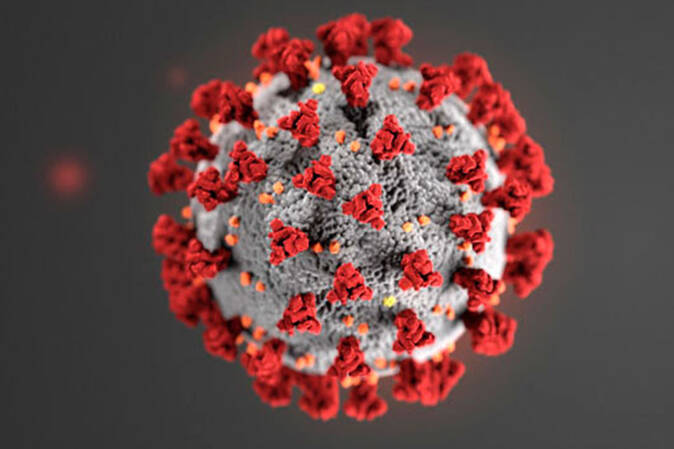Health officials said during a public science session Wednesday that COVID-19 cases are still low across Alaska and the United States, even as other countries are starting to see an uptick in new infections again.
“The United States (is) still on that general downward trajectory,” State Epidemiologist Joe McLaughlin said. “Now it looks like it’s kind of just leveled off, actually.”
In addition, he said COVID hospitalizations and deaths have decreased in Alaska.
“So that’s really good news,” McLaughlin said.
On Wednesday, the state Department of Health and Social Services reported 821 new COVID cases since March 25, along with six deaths through death certificate review.
There were a total of 37 COVID-related hospitalizations in Alaska as of Wednesday, with two of those patients on ventilators.
McLaughlin said COVID spread in other countries is mostly relatively low, but some are seeing fluctuations.
South Africa, where the omicron variant of the virus was first identified, has also seen COVID cases level off, while some countries in the European Union, as well as Australia, are seeing slight increases, McLaughlin said. He added that cases in Hong Kong and South Korea were trending upward at even steeper rates, but have since started to fall again.
The omicron variant of COVID has been causing an overwhelming majority of new infections from as far back as November 2021, and now its subvariant, BA. 2, accounts for slightly over half of the cases sequenced nationally, McLaughlin said.
“This is largely because BA.1 has really considerably decreased,” he said. “So it’s not that the number of cases has really increased, it’s really just BA.2 has kind of taken over the niche for BA.1.”
In Alaska, McLaughlin said BA.2 presence is slightly under the national average, at 44.57%.
Officials reiterated Wednesday that getting fully vaccinated and boosted against COVID will help slow the spread even further and protect people from severe illness, hospitalization and death.
Dr. Lisa Rabinowitz, a staff physician with the state, cited data Wednesday that showed people with their primary series and booster were 21 times less likely to die from COVID than an unvaccinated person, and seven times less likely to be hospitalized.
Booster shots are recommended to protect against omicron, whether or not a person has already contracted the virus and despite elapsed time since the completion of the primary series.
The Pfizer-BioNTech vaccine is approved for everyone 5 years and older, while the Moderna and Johnson & Johnson/Janssen vaccines are approved for anyone 18 and older.
The Food and Drug Administration and Centers for Disease Control and Prevention are recommending Pfizer boosters for anyone 12 and older at least five months after the primary series. Additionally, Moderna boosters are recommended for anyone 18 and older at least six months after a primary series.
Janssen boosters are approved for anyone 18 and older at least two months after initial vaccination, although DHSS officials say the Janssen shot isn’t the preferred vaccine because of risks of blood clotting and less robust protection against COVID. The state recommends people with a primary Janssen vaccine to get either a Pfizer or Moderna booster.
The CDC updated its COVID booster information Tuesday, and authorized additional doses for certain groups.
For those 50 years and older who are up to date with their primary series and first booster, another dose of either Pfizer or Moderna is authorized four months after the initial booster dose. In this category, a person with three vaccines of any combination of Pfizer or Moderna is now eligible for a fourth dose, and those with a single Janssen shot and booster can now receive a third dose of either Pfizer or Moderna.
In addition, certain immunocompromised individuals can also receive another Pfizer or Moderna shot four months after their last booster. This would include three shots for a primary series and two additional booster doses.
A map of vaccine providers can be found on DHSS’ COVID-19 vaccine website at covidvax.alaska.gov.
Reach reporter Camille Botello at camille.botello@peninsulaclarion.com.

